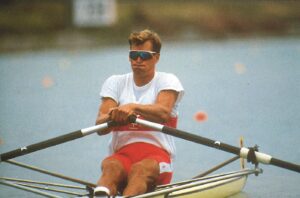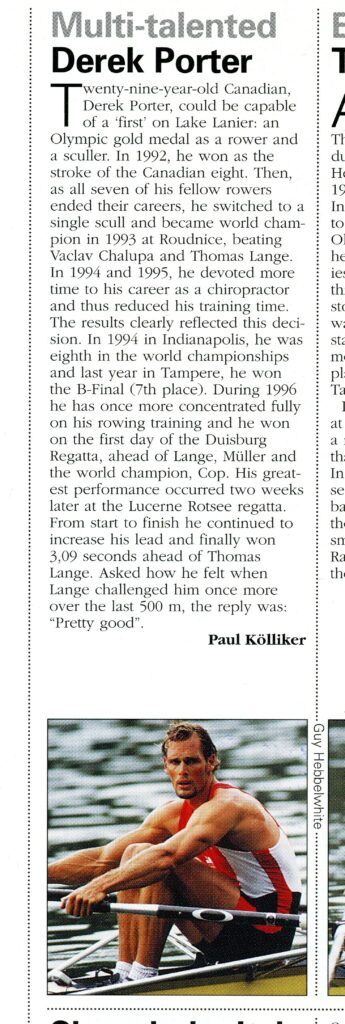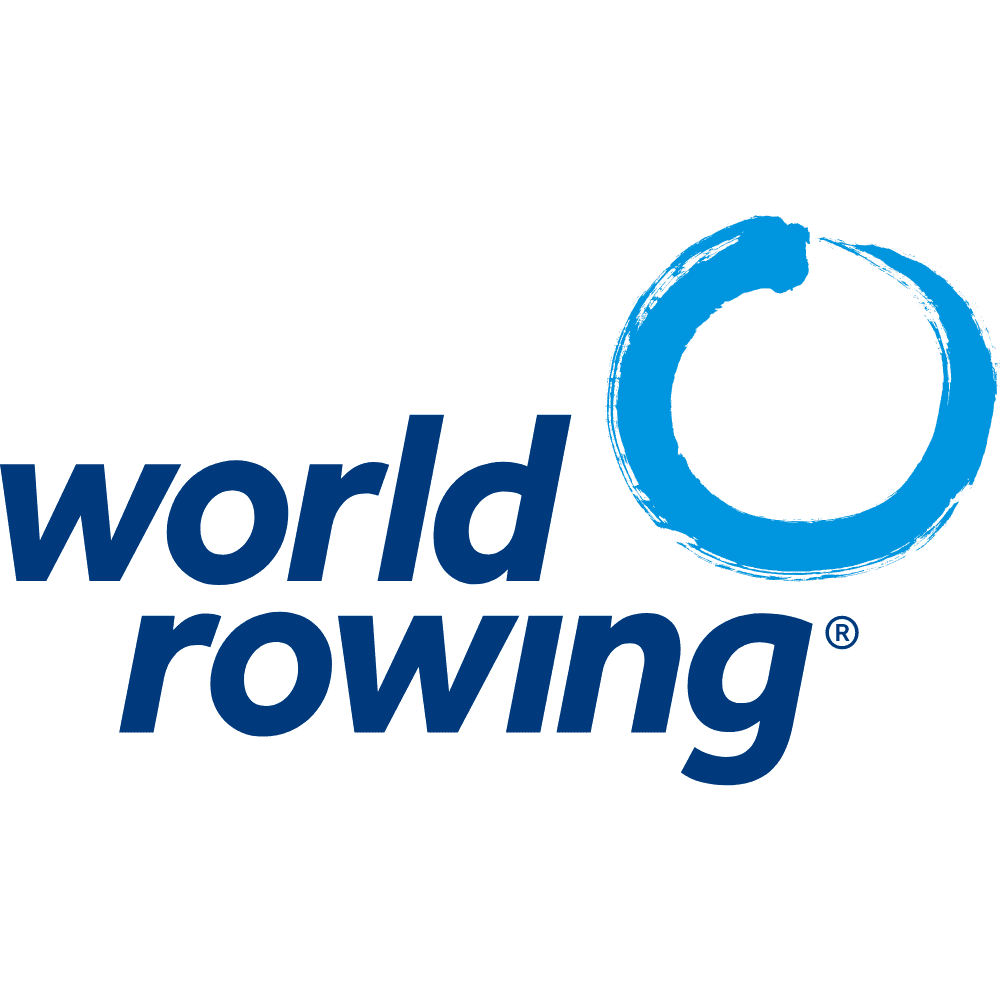
16 Feb 2023
Where they are now: Derek Porter

It was 1989. The 21-year-old Derek Porter had made the Canadian national team and was off to the World Rowing Championships. He’d picked up rowing at university and hadn’t been in the sport for that long.
Porter raced in the B-Final of the Men’s Pair. Just a year later he was in three seat of the Men’s Eight lining up in the final at the World Champs. His boat won silver that year, and followed this up at the 1992 Olympic Games with gold.
Porter started off rowing at the University of Victoria in British Columbia, Canada. He knew that someday he wanted to go to the Olympics and after having a number of ‘failed attempts’ at other sports, he figured rowing would be the best way to get there. His father had been a national team rower and, at 196cm tall, Porter looked to have found is sport.
“I was hooked from the moment I took my first stroke,” says Porter, “and I was rowing on the same lake as the National Team athletes, so I could see exactly where I wanted to go.”

After achieving Olympic gold, Porter switched to the single sculls and started making the podium straight away, taking out the World Champion title in 1993. At the 1996 Olympic Games Porter won silver in this prestigious boat class. He went on to race at the Sydney 2000 Olympics to a very close fourth-place finish. He decided it was time to retire and concentrate on his chiropractic business.
Porter found the move to retirement harder that he thought it would be.
“After so many years as an athlete, you identify yourself in so many ways as an athlete,” says Porter. “When that stops it can be difficult to fill that void with something that drives you in the same way. Navigating those changes can be challenging.”
Six years later Porter got back into the single and won the Canadian National Championships. He was back on the team and heading to the World Rowing Championships in a double.
“I rowed to the dock after the Final in 2000 and didn’t step in a boat for six years. I did have some fun doing triathlons for 5-6 years and dabbled in coaching rowing here and there.”
Now Porter enjoys cycling, tennis and skate skiing. The nearest he gets to rowing is jumping on the indoor rower at the gym for a warm up or cool down. But coaching still comes up regularly in conversations.
“I see some university rowers and club masters rowers at my clinic,” says Porter. “I enjoy talking about technique still and coaching some people on the erg when I get a chance.”
“I miss a lot from my rowing days. The relative simplicity of life and the task at hand, the camaraderie of teammates and other international athletes, the travel to awesome places to row and train, being in top shape, always striving with focused determination.”
Since the Sydney Olympics Porter has been working full time as a chiropractor in British Colombia. Now married, and with a ten-year-old son, Porter says his son keeps him honest on the sporting front. He enjoys reading and listening to podcasts usually, he says, related to health, nutrition and tennis technique.
When Porter looks back on his rowing career he has two stand-out memories: “Training with coach Mike Spracklen and building an eight which would go on to win Olympic Gold. This came after much training and re-tooling over three years to optimize our speed. It was a great learning experience on so many levels.
“The other was winning the World Championships in 1993 in the single which was a very different but rewarding experience.”
And how has rowing helped him in life in general?
“Being ok with experiencing and pushing through discomfort in any area of life.”

